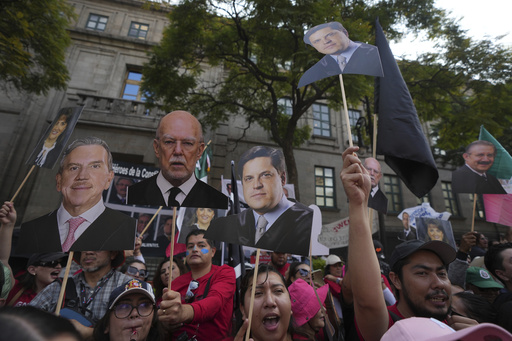
MEXICO CITY — On Tuesday, Mexico’s Supreme Court rejected a proposal aimed at narrowing the focus of a controversial judicial reform that mandates elections for all judges in the country.
The discarded proposal sought to limit electoral competition to only the justices of the Supreme Court, contrasting with the broader stipulation set forth in a constitutional amendment that was ratified in September, which includes all judges.
Despite seven of the eleven justices supporting the proposal to scale back the election requirements, a special majority of eight votes was necessary for approval.
In their announcement, the court clarified that this ruling did not address the legitimacy of the broader judicial reform but rather only dismissed the objections raised by various opposition political parties.
This decision follows the recent resignations of eight justices, who opted to leave the court rather than participate in the scheduled judicial elections for next June.
The remaining three justices, however, have declared their intention to run in the elections.
Additionally, last week, both Mexico’s Congress and a majority of state legislatures approved a new constitutional amendment designed to shield amendments from legal challenges. Nevertheless, the Supreme Court noted that this new protection was not applicable in this situation, as the challenges were filed prior to the amendment’s passage.
Prior to the court’s ruling, large crowds gathered outside in protest, reflecting widespread concern over the judicial overhaul, which many view as a threat to the independence of the judiciary and the rule of law.
Critics argue that requiring all judges to stand for election could lead to increased politicization within the judicial system. In contrast, President Claudia Sheinbaum has expressed support for this initiative, initially championed by her predecessor, former President Andrés Manuel López Obrador, who often had contentious relations with the court. Sheinbaum argues that these changes will help eliminate corruption within the judiciary.
